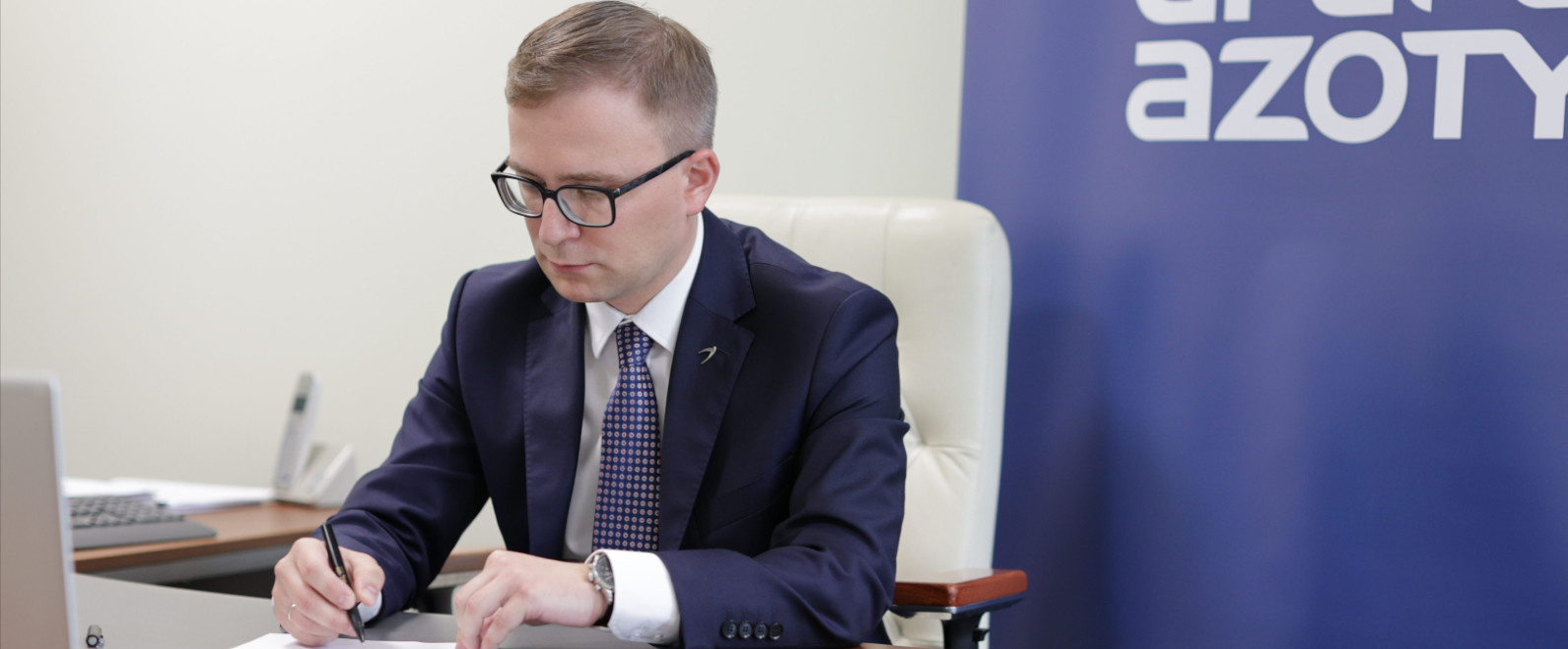
Grupa Azoty, PKP Cargo and PESA want to cooperate in advancing zero-emission rail freight transport. The companies are set to jointly implement research and development projects seeking to find optimum ways to use hydrogen to power rail vehicles and develop methods for transporting hydrogen and refuelling rail vehicles.
Creating hydrogen fuel transport, storage and refuelling infrastructure is vital in facilitating the development of rail transport using hydrogen propulsion in Poland. The letter of intent signed during the TRAKO International Railway Fair opens a new chapter of the joint effort to work out optimal solutions in these fields based on the partners’ previous experience.
Grupa Azoty – a leader of the European fertilizer and chemical industry and also the largest hydrogen producer in Poland – is conducting a number of development-oriented initiatives, including projects focused on fuel-cell hydrogen technologies. Its solutions may be instrumental in providing an efficient source of power for rolling stock and developing hydrogen and ammonia production from renewable energy sources that could serve as a fuel for rail transport.
‘Grupa Azoty expects hydrogen-powered transport to grow rapidly in the coming years and offers its potential as a supplier of the emission-free fuel for public transport. We are carrying out work on fuel cell development and are in the process of setting up a laboratory for accreditation of hydrogen for fuel cell applications in transport. Currently, Poland has few laboratories conducting comprehensive analysis of all parameters required in the automotive industry, hence the decision to open such a laboratory at Grupa Azoty in Kędzierzyn Koźle. I am confident the agreement we have signed with PKP Cargo and PESA is an important step in the advancement of zero-emission hydrogen transport in Europe,’ said Tomasz Hinc, President of the Management Board of Grupa Azoty S.A.
‘The hydrogen produced in Grupa Azoty’s process units and not utilised in subsequent stages of ammonia production is sent for purification in a process that yields hydrogen with a purity of up to 99.99%. We regularly send gas samples for purity verification, and as part of preparations for the entry into the market as a supplier of hydrogen for automotive applications we will have full control over the quality of our product, and we are able to obtain a product with a purity of 99.999%. We consider hydrogen technologies as a crucial stepping stone on the way to achieving climate neutrality, which is why we readily embark on business projects seeking to increase the importance of hydrogen in the domestic economy,’ said Grzegorz Kądzielawski, Vice President of the Management Board of Grupa Azoty S.A.
What low-emission rail transport means for PKP CARGO is not only the use of hydrogen-powered locomotives, but also challenges related to transporting hydrogen and hydrogen storage and refuelling methods.
‘PKP CARGO wants not only to use hydrogen-powered vehicles but also to offer hydrogen transport, storage and refuelling services. We strongly believe this particular market segment is bound to grow rapidly, and we want to be prepared when it happens. What is equally important, we want to contribute to developing optimum solutions in this field drawing on Polish technical know-how,’ noted Czesław Warsewicz, President of the Management Board of PKP Cargo.
PESA, which showcased Poland’s first hydrogen-powered locomotive at the fair, is looking to consistently implement projects that would facilitate commercialisation of passenger vehicles powered by hydrogen fuel cells.
‘Our customers are increasingly asking about hydrogen-powered rail vehicles, about when we will be ready to manufacture them and about whether Poland will have the necessary infrastructure. This is why we establish business relationships with Polish partners capable of providing hydrogen itself as well as hydrogen transport services and refuelling infrastructure,’ added Krzysztof Zdziarski, President of the Management Board of PESA Bydgoszcz S.A.
Given the size of demand for hydrogen-powered rail vehicles, the development of hydrogen technologies for rail transport could be a major catalyst of accelerated uptake of hydrogen as a fuel across all transport modes. This would be of great importance for the entire Polish economy considering the European Green Deal implemented by the European Commission, seeking to reduce CO2 emissions in transport by 30% by 2030, and to achieve climate neutrality by 2050.